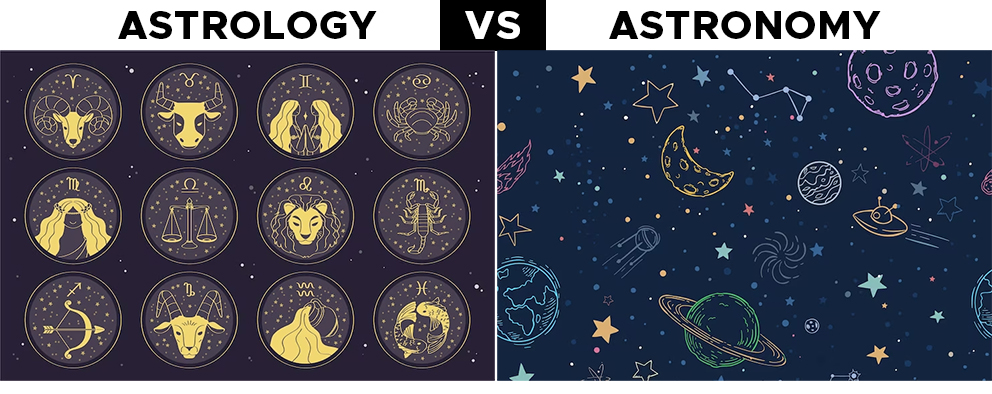
Astrology and astronomy are two fields often associated with celestial bodies and their influence on human lives. While they may sound similar, they are distinct disciplines with different goals, methodologies, and scientific validity. Veneta Kiss will explore the fundamental differences between astrology and astronomy, shedding light on their unique characteristics and purposes.
Astrology: The Study of Celestial Influence on Human Affairs
Astrology is an ancient practice that examines the supposed influence of celestial bodies, such as planets and stars, on human lives and events. It is based on the belief that the positions and movements of these celestial bodies can provide insight into an individual’s personality traits, relationships, and even their future.
Key Points about Astrology
- Astrology is considered a pseudoscience, as its claims and predictions lack scientific evidence.
- It operates on the principle that the positions of celestial bodies at the time of a person’s birth can shape their characteristics and destiny.
- Astrology is often associated with horoscopes, which provide interpretations based on an individual’s zodiac sign.
Astronomy: The Scientific Study of Celestial Objects and Phenomena
Astronomy, on the other hand, is a scientific discipline that focuses on the observation and study of celestial objects, including stars, planets, galaxies, and other phenomena in the universe. Astronomers use advanced telescopes and instruments to gather data, analyze celestial bodies, and understand the physical processes that govern the cosmos.
Key Points about Astronomy
- Astronomy is a branch of natural science that employs rigorous scientific methods to study the universe.
- It aims to understand the properties, origins, and evolution of celestial objects and the laws of physics that govern them.
- Astronomers rely on observations, mathematical models, and empirical evidence to advance knowledge about the universe.
Methodologies and Approaches
Astrology and astronomy differ significantly in their methodologies and approaches.
- Astrology’s Approach
Astrology relies heavily on interpretations and symbolism associated with celestial bodies. It uses astrological charts, which map the positions of planets and stars at specific moments, to make predictions and provide insights into various aspects of an individual’s life. The interpretations are often subjective and vary across different astrologers and cultural traditions.
- Astronomy’s Approach
Astronomy adopts a scientific approach grounded in empirical evidence and systematic observations. Astronomers make precise measurements, collect data, and analyze it using mathematical models and physical theories. Their findings are subject to peer review and scrutiny within the scientific community to ensure accuracy and reliability.
Scientific Validity
Astrology and astronomy also differ in terms of their scientific validity.
- Astrology’s Scientific Validity
Astrology’s scientific validity is highly controversial. The predictions and claims made by astrologers often lack scientific support and are considered unfalsifiable. The mechanisms through which celestial bodies could influence human affairs remain largely unexplained and unverified by empirical research.
- Astronomy’s Scientific Validity
Astronomy, as a scientific discipline, follows the principles of the scientific method. Its findings are based on empirical evidence, rigorous experimentation, and peer-reviewed research. The knowledge gained through astronomy has contributed to our understanding of the universe, the laws of physics, and the evolution of celestial objects.
In conclusion, astrology and astronomy are distinct fields with contrasting goals, methodologies, and scientific validity. While astrology focuses on the belief that celestial bodies influence human lives and events, astronomy is a scientific study of celestial objects and phenomena using empirical evidence and rigorous scientific methods. Understanding the difference between astrology and astronomy is crucial in discerning between pseudoscience and scientific inquiry when exploring the mysteries of the universe.
